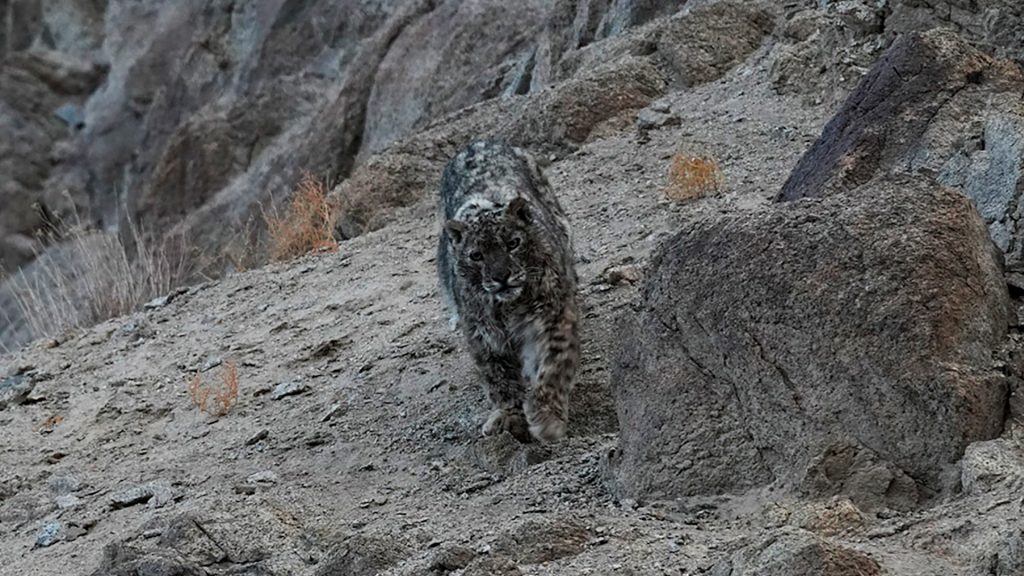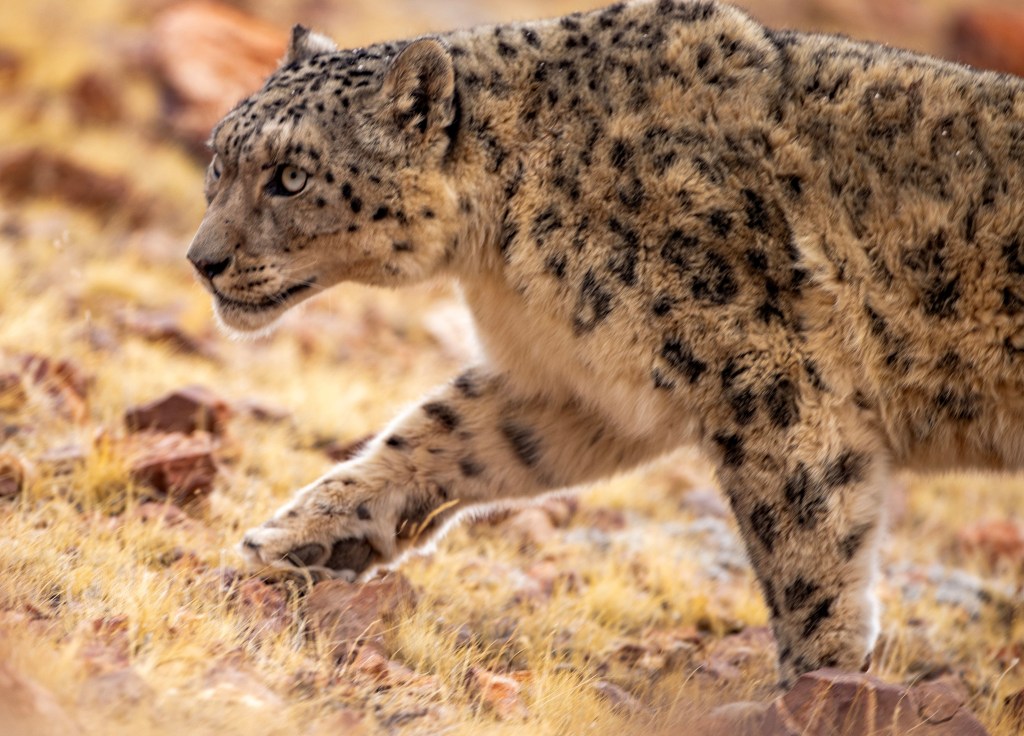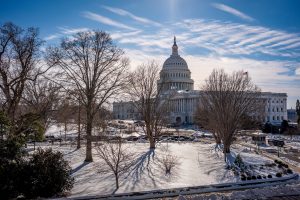Rare snow leopard family spotted in Pakistan offers hope for conservation
Ella Greene March 18, 2025 0
- A local gamekeeper and photographer captured footage of four snow leopards in Pakistan’s Central Karakoram National Park. The rare sighting sparked excitement among conservationists.
- Pakistan’s Snow Leopard Foundation collaborates with international organizations to protect the species.
- Ongoing threats to the big cats include habitat loss, climate change and poaching.
Full Story
A rare sighting of four snow leopards in northern Pakistan has sparked excitement among conservationists. It highlighted ongoing efforts to protect the species.
A Central Karakoram National Park camera caught footage of the elusive big cats, known as “ghosts of the mountains.”
The footage, taken by a local gamekeeper and photographer, shows a mother snow leopard with three cubs moving across a snow-covered cliff.
Conservation experts said this is an unusual sighting, as snow leopards are solitary animals and typically remain hidden in their rocky habitat.
How rare are snow leopards in the wild?
Snow leopards inhabit high-altitude regions across 12 countries, including Pakistan, China, India and Russia.
The International Union for Conservation of Nature (IUCN) classifies them as vulnerable species. Their global population is estimated at 4,000 to 6,500.

Pakistan’s northern mountains provide a critical habitat for the species. Roughly 200 to 420 snow leopards spread across the Karakoram, Hindu Kush, Pamir and Himalayan mountain ranges.
The Gilgit-Baltistan region, where the recent sighting occurred, contains the largest proportion of Pakistan’s snow leopard population. It accounts for more than 60% of the country’s estimated numbers.
What conservation efforts are in place?
Through community-based initiatives and wildlife protection programs, Pakistan has made significant strides in snow leopard conservation.
Conservationists credit increased awareness, habitat protection and collaboration with local communities for reducing human-wildlife conflicts.
The Snow Leopard Foundation (SLF), working with international organizations such as the World Wildlife Fund (WWF) and the United Nations Environment Program (UNEP), has introduced livestock vaccination programs and compensation funds to mitigate economic losses for herders affected by snow leopard predation.
Government-backed projects have also focused on population monitoring through camera trapping, genetic studies and site occupancy surveys.
These efforts have expanded conservation areas and strengthened protections for snow leopards and their prey species.
What are the threats to snow leopards?
Despite conservation gains, the big cats face ongoing threats from habitat loss, climate change and poaching.
Expanding human settlements and livestock grazing in high-altitude areas have led to habitat fragmentation and resource competition.
Retaliatory killings remain a concern. Herders occasionally target snow leopards in response to livestock losses.
Conservation groups are working to address these challenges through compensation programs and educational campaigns that promote coexistence between humans and wildlife.
What does this sighting mean for conservation?
The sighting of four snow leopards in a single location is seen as a positive indicator of the species’ presence and potential population stability in Pakistan.
Wildlife officials said it underscores the importance of continued conservation efforts and community involvement in protecting the country’s fragile mountain ecosystems.
Pakistan remains one of the most vulnerable countries to climate change. Conservationists emphasized the need for sustainable policies to safeguard snow leopards and their habitat for future generations.
Ella Rae Greene, Editor In Chief
Ella Greene
Ella and the staff at Clear Media Project (CMP) curate these articles.
Unless otherwise noted CMP does not write these articles.
The views, thoughts, and opinions expressed in the articles published on this blog belong solely to the original authors and do not necessarily reflect the views of the blog owner. The blog owner does not claim ownership of the content shared by contributors and is not responsible for any inaccuracies, errors, or omissions.
All rights and credits goes to its rightful owners. No Copyright Infringement is intended. If you believe any content infringes on your rights, please contact us for review and potential removal.





